Debt can feel like a heavy backpack filled with bricks. Each bill just gets heavier, doesn’t it? But fear not, because there are simple debt solutions that can lighten that load. From budgeting hacks to negotiation tactics, finding a way out of debt doesn’t have to be a Herculean task. Let’s explore how to tackle those pesky debts with confidence and maybe a chuckle or two along the way.
Table of Contents
ToggleUnderstanding Debt: An Overview

Debt is more common than most realize. It’s like that uninvited guest who just won’t leave. Understanding what debt is and the reasons it accumulates can help individuals navigate their financial struggles more effectively.
Types of Debt
There are various types of debt, each with its own implications.
- Secured Debt: This type is backed by collateral, like a home or car. If payments aren’t met, creditors can reclaim the collateral.
- Unsecured Debt: This includes credit card bills or medical expenses that aren’t tied to any specific asset. The stakes can feel lower, but the interest rates tend to be much higher.
- Student Loans: These are designed to help with educational expenses but can become burdensome in the long run.
- Mortgages: Often the largest debt an individual will face, a mortgage allows for the purchase of a home but comes with long-term commitments.
Common Reasons for Accumulating Debt
Understanding why debt accumulates can lead to better prevention strategies.
- Unexpected Expenses: Life happens, medical emergencies, car repairs, or a leaky roof can take a financial toll.
- Living Beyond Means: Often, individuals spend more than they earn, leading to reliance on credit cards.
- Lack of Financial Education: Without proper knowledge, many fall into traps of high-interest loans or poor financial planning.
The Importance of Debt Management
Managing debt is crucial for financial health. It’s not just about paying bills: it’s about regaining control over one’s financial situation.
Simple Strategies to Manage Debt
An effective strategy can turn the tide in managing debt.
- Set Clear Goals: Understand what you want to achieve. Is it paying off one credit card? Or tackling student loans? Clear goals help maintain focus.
- Make Consistent Payments: Regular payments, even if small, can prevent debt from ballooning out of control.
- Seek Professional Help: Financial advisors or credit counseling services can provide tailored advice based on individual needs.
Creating a Budget
A well-crafted budget is the foundation of effective debt management.
- Track Income and Expenses: Knowing where your money goes is essential. Apps or simple spreadsheets can help visualize this.
- Prioritize Needs Over Wants: Distinguish between what is necessary and what can be postponed.
- Adjust Regularly: As expenses fluctuate, always be ready to adjust the budget.
Negotiating with Creditors
Sometimes, a simple conversation can lead to significant relief.
- Prepare Your Case: Show creditors that you’re proactive about paying off your debt. This might involve sharing documentation of your financial situation.
- Ask for Lower Interest Rates: Many creditors would rather negotiate than risk losing a customer altogether.
- Set Up a Payment Plan: If you can’t pay the full amount, inquire about manageable installment plans.
Consolidation vs. Settlement: What You Need to Know
When exploring debt solutions, understanding the difference between consolidation and settlement is vital.
Steps to Consolidate Your Debt
Consolidating debt can simplify payments, but it requires careful planning.
- Assess Your Debts: List all debts along with their interest rates to see which would benefit most from consolidation.
- Choose a Consolidation Loan: Look for loans with lower interest rates than your existing debts.
- Close Old Accounts: Once debts are consolidated, closing old accounts can prevent racking up new debt.
Understanding Debt Settlement Options
Debt settlement is another route, but it comes with its own set of challenges.
- Negotiate a Lower Total: You or a settlement company can negotiate with creditors to pay less than owed.
- Beware of Fees: Some companies charge hefty fees for their services, so always read the fine print.
- Check Credit Impact: Settling debt may negatively affect credit scores, but it can provide relief in the long run.
The Pros and Cons of Debt Solutions
Every approach to managing debt has its ups and downs. Understanding these can help one make informed decisions.
Potential Risks of Ignoring Debt Solutions
Ignoring debt solutions can lead to dire consequences.
- Increased Interest Rates: As debts accumulate, lenders may increase interest rates.
- Damaged Credit Scores: Missing payments or defaulting can severely impact credit scores, making future borrowing difficult.
- Legal Actions: Severe debt may lead to lawsuits, adding further financial strain.
Long-Term Impacts of Debt on Financial Health
Addressing debt means paving the way for a more secure financial future. This shift can lead to healthier financial habits.
Establishing Healthy Financial Habits Going Forward
Once the weight of debt is lifted, adopting new habits ensures it doesn’t return.
- Emergency Funds: Prioritize building a safety net to cover unexpected expenses.
- Regular Financial Check-Ups: Just like visiting a doctor, performing regular assessments of finances can keep one on track.
- Continued Education: Stay informed on financial literacy to make educated decisions. Knowledge is power when it comes to finances.



